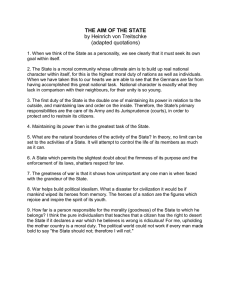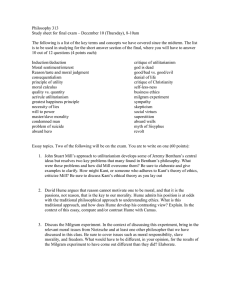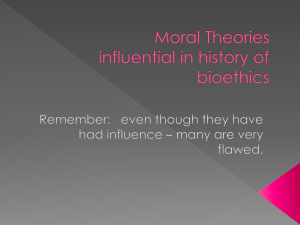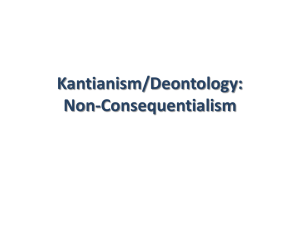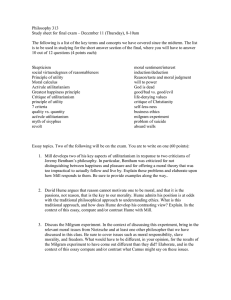`Euthyphro Dilemma`
advertisement
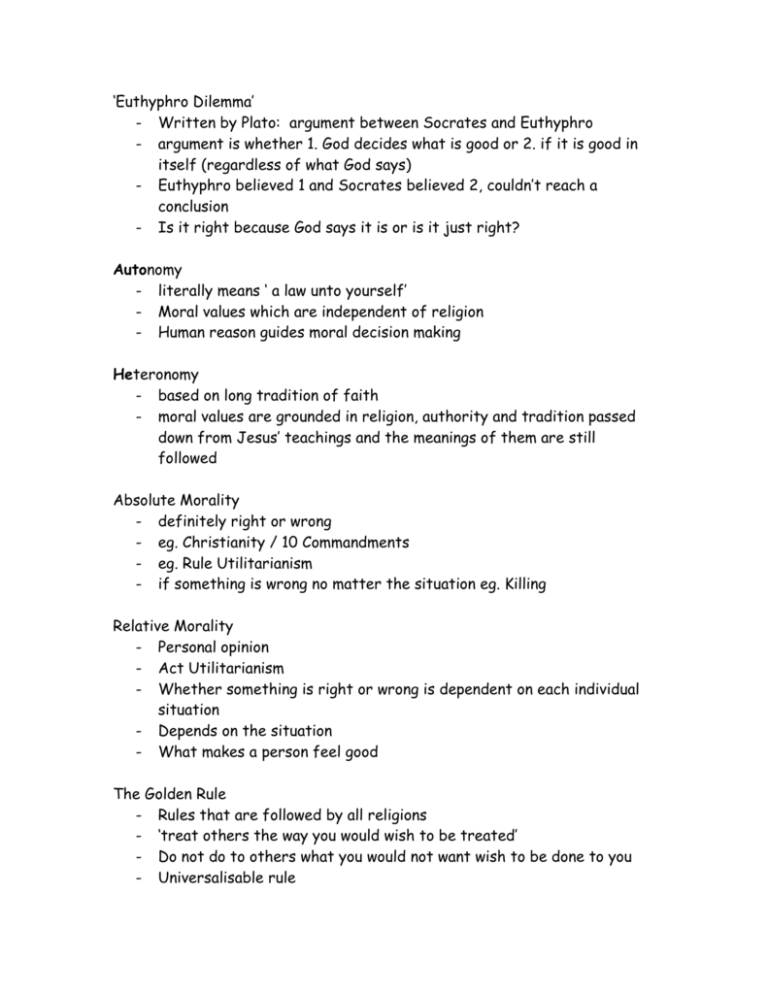
‘Euthyphro Dilemma’ - Written by Plato: argument between Socrates and Euthyphro - argument is whether 1. God decides what is good or 2. if it is good in itself (regardless of what God says) - Euthyphro believed 1 and Socrates believed 2, couldn’t reach a conclusion - Is it right because God says it is or is it just right? Autonomy - literally means ‘ a law unto yourself’ - Moral values which are independent of religion - Human reason guides moral decision making Heteronomy - based on long tradition of faith - moral values are grounded in religion, authority and tradition passed down from Jesus’ teachings and the meanings of them are still followed Absolute Morality - definitely right or wrong - eg. Christianity / 10 Commandments - eg. Rule Utilitarianism - if something is wrong no matter the situation eg. Killing Relative Morality - Personal opinion - Act Utilitarianism - Whether something is right or wrong is dependent on each individual situation - Depends on the situation - What makes a person feel good The Golden Rule - Rules that are followed by all religions - ‘treat others the way you would wish to be treated’ - Do not do to others what you would not want wish to be done to you - Universalisable rule Consequentialism - eg Utilitarianism o Bentham o Mill o Hedonic Calculus o Higher / Lower pleasures o Act / Rule - Looks at the consequences of an action to decide moral value - Normative Ethics Duty - Using duty to distinguish between right and wrong - An act can only be good if you feel it is your duty to do so and not just if it makes you feel good - Immanuel Kant / Kantian Ethics o Duty o Categorical imperative o Hypothetical imperative o Universalisable maxims Human Excellence or Virtue Ethics - Good moral practise - Aristotle Reason - Your own justification for doing something that you believe to be right or wrong Sacred Scriptures - Bible, Torah, Qu’ran - Interpretation
